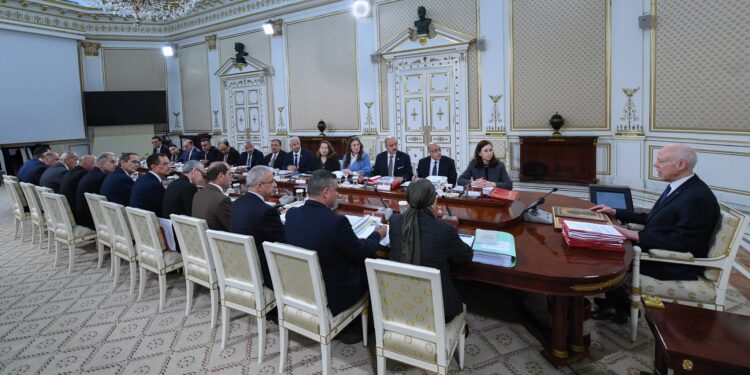During the Council of Ministers held yesterday at the Palais de Carthage, the President of the Republic, Kaïs Saïed, delivered a river discourse of rare virulence against certain senior officials of public administration, which he accuses of “voluntarily sabotage” the basic services to stir up social anger.
“Some are not content to do not do their duty, they deliberately block the administrative machine,” launched the president at the opening of the meeting. Pointing to several recent incidents, including water cuts in the KEF region that occurred in the middle of Eid celebration, he was outraged to have had to intervene personally, at indie hours, to solve problems that normally fall under local skills.
“It is not up to the President of the Republic to wake up at dawn to resolve a matter of water or electricity. It is a serious failure of the local state ”, he hammered.
An uncompromising diagnosis
In a serious tone, the head of state denounced the inaction and duplicity of several public officials, accused of knowingly hindering the functioning of public services, in particular in the fields of transport, energy and supply.
“Some officials do not serve the state, they serve special interests, even economic lobbies. These people no longer have their place in the administration ”, he said.
Evoking recurrent electric cuts, fraudulent practices in the billing of water or the disorganization of wholesale markets, the president called for “a new approach”, breaking with what he considers the failure of previous policies.
The triple revolution: legislative, administrative, cultural
Saïed has developed a vision which he describes as structural transformation: a legislative revolutionalready initiated according to him, accompanied by a deep administrative reform and a cultural renewal. These changes aim to restore the confidence of citizens in the State and to meet expectations in matters of social justice, employment, dignity and territorial equality.
“We must shorten the distances of history. We have to work far beyond what some demand ”, He said, urging collective mobilization.
National sovereignty and rejection of interference
The Head of State also took advantage of this address to reaffirm Tunisia’s sovereignty on several occasions in the face of any attempt at external interference. In a particularly hard charge against certain political and media actors, he denounced those who “bow down to the embassies” or who “sell their conscience abroad”.
“Tunisia is an independent state. Sovereignty belongs to the people. We are not for sale ”, he thundered.
He also warned of the role of certain elites and former officials whom he accuses of having looted national resources, citing Tunisian fortunes frozen abroad, and calling for their restitution in an international framework.
A strong state, active social justice
The presidential speech, focused on the fight against corruption, the recovery of diverted funds, and the strengthening of social justice, is part of a logic of restoration of a Strong stateguaranteeing real equality and fair access to public services.
“There is no real freedom without transport for all. There is no right to education if the means are lacking. Political rights must go hand in hand with economic and social rights ”, insisted Saïed.
Finally, the president promised that the networks which continue to “burn in silence” the administration and the institutions will be dismantled, and that Tunisia will continue, with “firmness and faith”, its “historical passage” towards a new political and social model.








